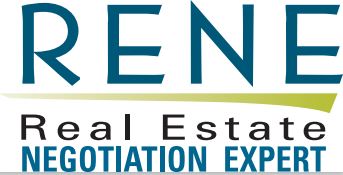If you’ve been looking for a new home lately, you’ve probably noticed solar panels on many rooftops. Those big, black rectangles harness the sun’s energy to benefit the homeowner. Rooftop solar systems provide homeowners with benefits, including lower energy bills, greater energy self-reliance, potentially higher resale values, and more curb appeal. In recent years, the residential solar market has grown significantly, with over 500,000 projects installed in 2021 alone. If you’re considering buying a home with solar panels, a little due diligence can help you avoid unpleasant surprises. Here are some questions to ask before you buy a home with a solar lease:
What kind of solar panels are on the roof?
A home with solar panels on the roof uses the sun’s energy to capture thermal (heat) or photovoltaic (electric) power. Solar thermal systems are, in general, more efficient. Solar photovoltaic (PV) systems are more common and available at lower up-front costs.
When most Americans think about solar homes, they probably think about photovoltaic power. These systems convert sunlight into electrical energy. The most recognizable parts of the PV system are the solar panels. Most home systems also include mounting structures that stabilize the panels in bad weather and inverters. Inverters convert the direct current (DC) electricity captured by the panels into alternating current (AC) electricity. The AC electricity is then used to power most of the appliances in your home. It can even be sold back to your utility (if you don’t use all the energy your home produces).
You can identify a solar home with a PV system by the wires or cords running out of the panels and an “extra” power box on the side of the house, which measures the energy produced by the system.
How were the solar panels obtained?
Solar photovoltaic (PV) systems usually pay for themselves over the long term. Both can also have pretty high up-front costs. The price for a PV system varies by how much energy you want to produce, but the average five-kilowatt (5 kW) residential system costs around $20,000. A wide array of federal, state, and local incentives can significantly reduce the cost of both systems.
If the seller paid for the system up-front, you don’t need to worry about hidden costs.
If the seller financed the system, the seller is responsible for paying off the solar loan. They may want to add any remaining balance to the home’s sale price. If the seller purchased the system with a secured loan (like a home equity line of credit), they might not be able to close the sale until they pay that debt in full.
If the seller obtained the solar panels under a long-term solar lease or power purchase agreement (PPA), the buyer has to do a little more work.
Is the solar system subject to a solar panel lease or power purchase agreement (PPA)?
If the home seller has a solar lease, they do not own the solar system installed on the home. As with an auto lease, the current homeowners make monthly payments to the system owner.
A power purchase agreement allows a company to install a solar system on the homeowner’s property. The homeowner agrees to purchase the energy produced by the system at a rate that’s usually lower than the utility’s retail rate.
Both arrangements are common since they allow homeowners to take advantage of the benefits of solar power without needing the substantial upfront cash required to purchase a system outright.
The homeowner may want to buy out the remainder of the lease or power purchase agreement. Buying out the deal would allow them to sell the system as part of the home and command a higher selling price. They may instead make a lease transfer a condition of the sale.
Before you buy a home with leased solar panels, ask the homeowner these questions:
- Who manufactured the solar panels?
- What warranties are available?
- How long do warranties cover the parts and equipment?
- Who installed the system?
- Does the installer provide quality warranties?
- What is the size of the solar energy system, and how much electricity can it offset?
- How much have past energy bills cost?
How do you transfer a solar lease or power purchase agreement?
If you want to transfer a solar lease or power purchase agreement, the seller or the seller’s real estate agent should be able to put you in contact with the solar company’s service transfer specialist. After your mortgage is approved, the solar lease transfer representative will send the buyer and the seller a form to fill out and sign. Once the new solar lease is approved, you’ll start making the lease payments (usually separately and outside of escrow or payments to your lender).
Do solar panels increase home value?
Buying solar panels generally helps increase the value of a home because they enable you save on energy bills and provide a feature for the next homebuyer who may also want to have an option to generate their own power. The Berkeley Lab suggests that solar panels can increase the sale value of a home by an average of $15,000.



 Facebook
Facebook
 X
X
 Pinterest
Pinterest
 Copy Link
Copy Link












